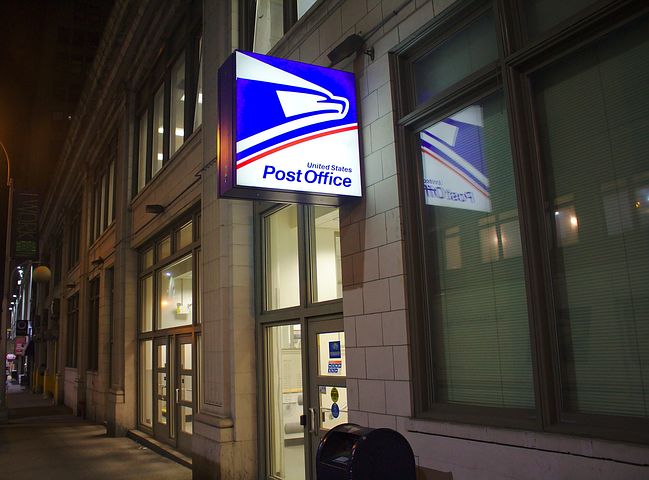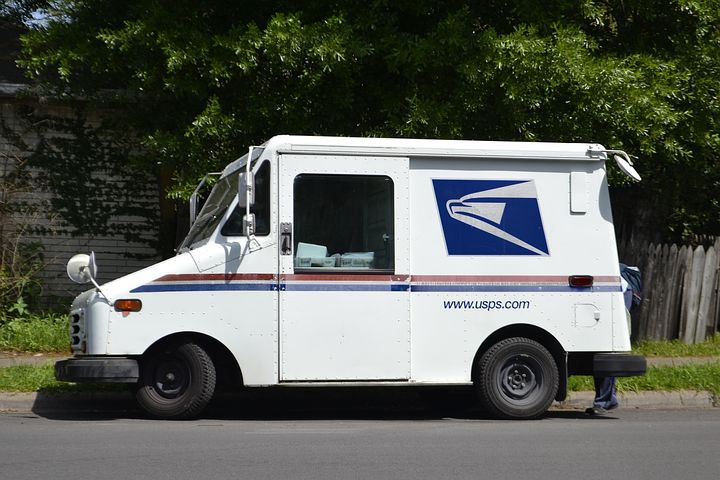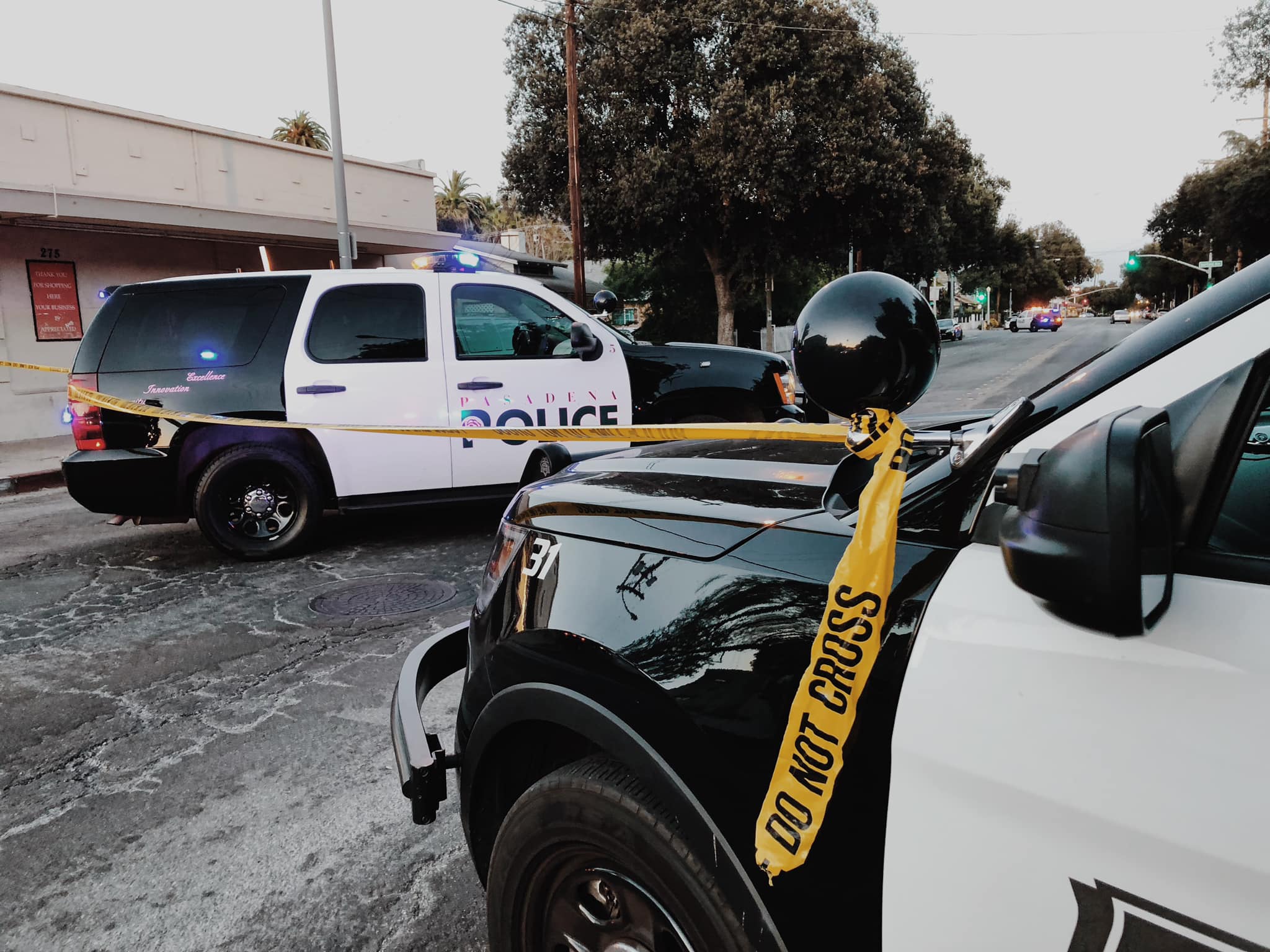Benjamin Franklin appointed the first postmaster general in 1775 but it wasn’t until the passage of the Postal Service Act in 1792 that the post office department was created. In 1970, it became what we now know as the United States Postal Service (USPS).
For all the noble purposes its creation was intended, the USPS has seen its share of negative press and not by its own doing. In 1986, a series of incidents involving postal workers killing managers, fellow workers, and police officers originated the derogatory expression ‘going postal.’ Since then, anyone having a meltdown is described as ‘going postal.’
Public officials have consistently decried the USPS’s inefficiency and its deplorable fiscal state; there have been ongoing discussions about privatizing it. It is once again in the headlines because of budget cutbacks that Postmaster General Louis DeJoy implemented and how that could affect the upcoming elections.
President Trump recently threatened to block aid for the agency unless it quadruples its prices for package shipping. That could adversely affect the USPS’s partnership with Amazon to deliver the online giant’s packages at a discounted rate. Yet, its financial woes may have nothing to do with shipping prices but are due to a congressionally-mandated retirement health plan that no other agency is required to observe.
All these, however, are a cause for concern among USPS employees as they wonder if they will have jobs when the dust finally settles. I would like to advocate recognizing the invaluable service that these men and women provide and rescuing them from an uncertain future.
Our mail carrier Rudy has been working in our neighborhood since my daughter Brianna was four years old. She thought then that Rudy was a relative because each time he delivered our mail, we would chat and ask about each other’s family members as if we knew them personally.
Rudy and I swapped accounts of the challenges in finding caregivers for parents with dementia and the travails of the ‘sandwich’ generation – adults who have aged parents and young children to look after. We commiserated with each other when these parents we had been worrying about passed away.
It was Rudy who chased after our hyperactive cocker spaniel Charlie when he bolted out into the street as we were chatting by the front door one day. As fast as Charlie ran, Rudy was faster and got our dog safely back in no time.
I don’t know everything that happens in our neighborhood, but Rudy sees them all and that’s how I find out. He is privy to a lot of joyful occasions as well as the heartbreaking events. He was the one who told me that the well-known interior designer who owned the gorgeous French Regency residence nearby was moving to South Pasadena to open a larger office. Four years ago, he excitedly informed me that the teenager who lived close to us had qualified to compete in swimming at the Summer Olympics – he was as proud of her as her parents were!

When an internationally famous pop star suddenly died about a decade ago, Rudy told me a neighbor of ours was bereft not only because she knew him personally – she was one of his back-up singers – but also because his worldwide tour was going to be her major break.
A sad occurrence Rudy relates concerns an older resident who lived on her own. He says, “I always made it a point to stop for a few minutes to look in on her and would run errands for her. One day, I found out that some of her relatives were trying to extort money. I took it upon myself to let her exploiting relatives know that I was aware of what was happening, and that I would report them to the proper authorities if they attempted it again. She has since passed away and her estranged daughter is now living in the house. I wish she had been there when her mom needed her.”
Perhaps the most heartrending event Rudy has witnessed unfolded only a few weeks ago. He recalls, “There was an electrical accident at the house that’s being built up on this street. I saw the man who was working inside come running out with his body on fire. People had gathered, telling him to roll around the grass but there really wasn’t much of that left, there was mostly debris from all the construction. The man’s clothes had burned and he was naked, so I asked someone to get me a towel to cover him with. The paramedics arrived rather quickly and rushed him to the hospital but, tragically, he passed away the following day.”
As to the job itself, Rudy says, “It is generally a pleasant job. The mail processing at the facility where I work is quite organized – the mail being distributed to carriers is balanced out so that there aren’t days when we’re delivering them until dark. That’s not to say that it isn’t stressful, though,” he admits. “There’s always the pressure to work faster and more efficiently.”
It’s usually the mail carrier who is the first to see changes in the area and Rudy has observed a shift in demographics in the last decade. He reports, “There’s a lot of construction going on. Older residents are moving out and are being replaced by younger families. The pandemic caused an increase in online shopping which has meant more packages to deliver, but I already had more packages than other carriers’ even before the lockdown because there are more young people on my route and they tend to shop online.”
I ask what he likes about being a mail carrier, and Rudy replies, “The people are all very friendly, warm, and caring. There’s one elderly gentleman who keeps an ice chest with cold water and soda waiting for me on his porch. Another older lady calls me on my cell or home phone when she hasn’t see me for days, to make sure I’m okay. Everyone takes the time to chat or say ‘Hello.’ It’s the people that make it a gratifying job.”
Rudy has been working for the post office for 31 years. He and his wife will be celebrating their 39th anniversary next month, after having raised four children ranging in age from 38 to 25. He’s eligible for retirement and is looking at all his options. He loves the job and enjoys his daily rounds in the neighborhood but he thinks it might be time to hang up his mail carrier hat. It will be a gloomy day when he decides to – we can’t fathom having someone other than Rudy deliver our mail.

A mail processing clerk who graciously agrees to answer my questions on condition of anonymity because he is contractually prohibited from speaking with the media on behalf of the post office without their prior approval, has been a USPS employee for six years now.
When I inquire if he feels the agency gets undeserved bad publicity, he says, “I’m not sure that USPS gets all that much bad publicity. At the end of the day it is a service that customers pay for; and when a customer has a bad experience they will want to complain about it (sometimes rightfully so). Maybe some people wrongfully believe their tax dollars are being spent to support the Postal Service and would like to have more say in how it is handled. As a service it is not without its shortcomings, but postal workers fulfill a vital role in society. Everyone notices when the package or letter they’ve been expecting arrives late and a lot of people are working to make sure it won’t.”
I ask how the budget cuts affected employees, his workplace, and the performance of his duties, and he replies, “At my facility only overtime hours were cut; but in a facility with hundreds of employees, that equates to a lot of work time. The only changes I have experienced were cuts to overtime and operational hours, i.e., operations were to be shut down at prescribed times to facilitate a regimented flow of mail; but that meant unprocessed mail was held for the following day.”
“This led to delays in processing for delivery, which meant most days were heavy (for this time of year) and ultimately led to sending large amounts of mail to the carriers every day,” he continues. “That affects how long they are out on the road and, in turn, how quickly they can return with mail to be sent out processed. These policies would not have held up under the volume of the election mailings [opinion based on having worked during previous elections] – the amount of mail that would have been delayed would have been astronomical. During the 2016 election, mail-in-ballot volume increased processing time for outgoing mail by 1-2 hours a day for multiple weeks leading up to the election itself.”
As to accounts in the media about rotting food and dead animals at some postal offices, he clarifies, “The only parcels we work on are 1-day Express and those were unaffected. Live animals, perishables, organs, et. al. are only supposed to be sent 1-day Express. If those items were sent by another method it would be handled by another facility; and those stories do not surprise me with parcel volume as high as it is coupled with the cuts we had experienced.”
“The atmosphere at work is fairly neutral, trending toward concern,” he adds. “There was a lot of confusion and frustration with the policies enacted at the beginning of August. There is some uncertainty with regard to funding and the longevity of the Postal Service, should the recent strains put on it persist.
“It is largely a good place to work, notwithstanding. Like many jobs there are supervisors and managers you like and those you don’t; coworkers you like and those you don’t. There is plenty of opportunity to advance or branch out into different jobs other than what I do currently. More recently, it has been stressful with wearing a mask all day at work and the political climate making our future uncertain. But I have work that keeps me busy enough to not worry too much.”
As he points out, the USPS is a good place to work at. It is also a compassionate agency. According to the USPS website, it has a long history of providing career opportunities to veterans, reservists, and their family members. It employs more than 97,000 veterans across the country. Former military members make up over 18 percent of its personnel, which means it employs veterans at three times their share of the national workforce.
Besides being a good employer, the USPS offers affordable postal and shipping rates and small business owners rely on it to get their products to customers. While the recent delays due to the budget cuts caused havoc on their shipping budget and even resulted in lost income for some, that is not the norm. The USPS has reliably delivered parcels and packages to their destination in a few days.
Compared with those of other countries, we enjoy the least expensive postal delivery system – a fact most of us don’t fully appreciate. Being an avid traveler with an annoying habit of sending postcards to friends and family from wherever I am, I have first-hand knowledge.
We spend 55 cents to send by first-class mail a one-ounce letter, and 15 cents for each additional ounce, $1 for a flat/large envelope, and 35 cents for postcards anywhere within the United States – that’s 3,797 million miles of land area. We pay $1.20 to send a letter or card to most countries in Asia and Western Europe.
The Royal Mail, on the other hand, charges 76p for first-class (approximately $1.30) and 65p (approximately 86 cents) for second class mail within the United Kingdom. Tom, my son-in-law, is from England and his entire family lives there. It costs his friends and family from ₤1.55 (about $2.06) to ₤1.66 (about $2.21) to send him a one-ounce card during the holidays. And having been to the U.K. a few times, I know that it costs at least ₤1(about $1.33) to send a postcard here.
My sister, who lives in Switzerland with her husband and daughter, spends CHF 2.00 (about $2.12) to send a letter to me. I have to add that the Swiss postal system hasn’t been as reliable as in the past – the last time I sent my niece a birthday card, it took seven weeks to get to her, when it used to take only five days.
I have relatives in the Philippines who have limited themselves to sending me e-cards during Christmas because the price of international postage stamps is prohibitive. To give you a clear picture of what I mean, the minimum wage there is 537 Philippine pesos (PHP) or $11.05 per day and sending a one- ounce letter (up to 28.35 grams) to L.A. county costs 140 PHP or $2.88. That’s over a quarter of what a Filipino minimum-wage worker makes in one entire day!

Even as we pay affordable rates for postage, we complain each time the price increases. So the USPS created the ‘Forever’ stamp we can use even when the rate goes up. I haven’t heard of any other country’s postal system that has resorted to that.
Speaking of stamps, the United States has some of the prettiest stamps you can find. And I know what I’m talking about – I have quite an impressive stamp collection that spans 74 years and covers 65 countries. Okay, I’m old (because who else but an old person would have a stamp collection, right?) but not quite as old as the oldest stamps in my collection. It just so happens that my long-deceased grandfather worked for the Philippine post office and he bequeathed to me his commemorative first day cover of the July 4, 1946 Philippine Independence Day stamp (Philippine independence from American rule, which is different from when the United States liberated it from Spanish colonization in 1898). In fact, it was how my hobby started. But I digress.
Postal workers perform essential functions which cannot be replaced by a machine. The ZIP code, which was introduced and implemented in 1963, allowed for automated mail sorting. And since I’ve only ever received or sent out letters and cards with ZIP codes on them, I thought a letter would not get to its destination without it. Until I was proved wrong. Two weeks ago, Tom received a card from his childhood friend in England. Instead of putting the ZIP code, his friend inadvertently wrote Tom’s entire 10-digit cell phone number!
While a missing ZIP code isn’t exactly an adversity to overcome, America’s postal workers have battled natural calamities to get our mail delivered. The motto ‘Neither snow nor rain nor heat nor gloom of night stays these couriers from the swift completion of their appointed rounds’ aptly describes what they accomplish.
Our mail carriers are a part of our daily lives – they cheer with us when we celebrate milestones and grieve with us when we mourn our misfortunes. They are a thread in the fabric of our community.







